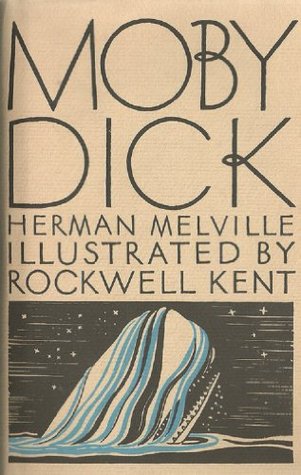"What is it, what nameless, inscrutable, unearthly thing is it; what cozening, hidden lord and master, and cruel, remorseless emperor commands me; that against all natural lovings and longings, I so keep pushing, and crowding, and jamming myself on all the time; recklessly making me ready to do what in my own proper, natural heart, I durst not so much as dare?
"I do not understand what I do. For what I want to do I do not do, but what I hate I do." (Romans 7:15)
And here again the influence of Shakespeare on Melville is apparent. Ahab shares with Shakespeare's tragic figures an inability to understand what drives him, a theme explored by A.C. Bradley in his book, "Shakespearean Tragedy."
Bradley also argues that what we might call a tendency toward obsession appears to be, for Shakespeare, "the fundamental tragic trait". The Bard's tragic figures --
"....are exceptional beings. We have seen already that the hero, with Shakespeare, is a person of high degree or of public importance, and that his actions or sufferings are of an unusual kind. But this is not all. His nature also is exceptional, and generally raises him in some respect much above the average level of humanity....by an intensification of the life which they share with others, they are raised above them; and the greatest are raised so far that, if we fully realize all that is implied in their words and actions, we become conscious that in real life we have known scarcely any one resembling them. Some, like Hamlet and Cleopatra, have genius. Others, like Othello, Lear, Macbeth, Coriolanus, are built on the grand scale; and desire, passion, or will attains in them a terrible force. In almost all we observe a marked one-sidedness, a predisposition in some particular direction; a total incapacity, in certain circumstances, of resisting the force which draws in this direction; a fatal tendency to identify the whole being with one interest, object, passion, or habit of mind. This, it would seem, is, for Shakespeare, the fundamental tragic trait. It is present in his early heroes, Romeo and Richard II, infatuated men, who otherwise rise comparatively little above the ordinary level. It is a fatal gift, but it carries with it a touch of greatness; and when there is joined to it nobility of mind, or genius, or immense force, we realize the full power and reach of the soul, and the conflict in which it engages acquires that magnitude which stirs not only sympathy and pity, but admiration, terror, and awe."


